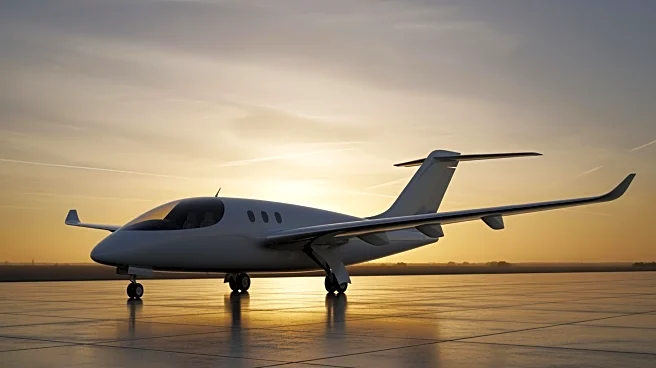What's Happening?
Transport Canada has certified three Pipistrel light aircraft, including the all-electric Velis Electro two-seater. This certification marks a significant milestone for Pipistrel, as the Velis Electro becomes
the first all-electric aircraft to be certified in Canada. The certification process involved rigorous testing to ensure compliance with safety and performance standards. Pipistrel's Velis Electro is designed for training and short-distance flights, offering a sustainable alternative to traditional fuel-powered aircraft. The certification is expected to boost Pipistrel's presence in the Canadian market and promote the adoption of electric aviation technology.
Why It's Important?
The certification of the Velis Electro represents a major advancement in the aviation industry, highlighting the growing interest in sustainable and environmentally friendly technologies. Electric aircraft offer significant benefits, including reduced emissions and lower operating costs, which are crucial in addressing climate change and promoting green aviation. The successful certification may encourage other manufacturers to invest in electric aviation technology, potentially leading to broader adoption and innovation in the sector. This development aligns with global efforts to reduce carbon footprints and transition to cleaner energy sources.
What's Next?
Following the certification, Pipistrel is likely to focus on expanding its market presence in Canada and promoting the benefits of electric aviation. The company may engage in partnerships with flight schools and operators to integrate the Velis Electro into training programs and short-haul operations. Additionally, Transport Canada's certification could pave the way for further regulatory approvals in other countries, enhancing Pipistrel's global reach. The success of the Velis Electro may inspire other manufacturers to accelerate the development of electric aircraft, contributing to the evolution of the aviation industry.
Beyond the Headlines
The certification of the Velis Electro underscores the potential for electric aviation to transform the industry, offering a glimpse into a future where sustainable flight is the norm. This shift may lead to changes in infrastructure, such as the development of charging stations and maintenance facilities tailored to electric aircraft. The move towards electric aviation also raises questions about the future of pilot training and the skills required to operate these new technologies. As the industry evolves, stakeholders must consider the implications for workforce development and regulatory frameworks.








